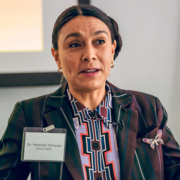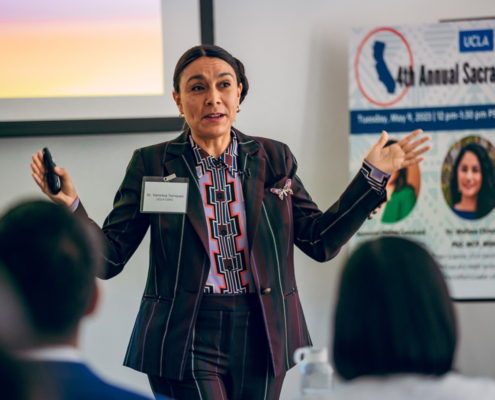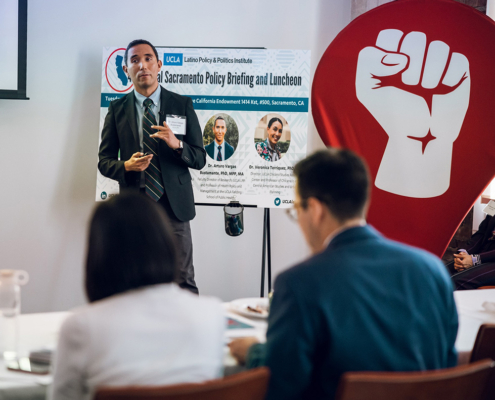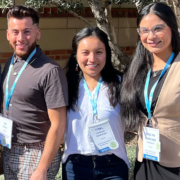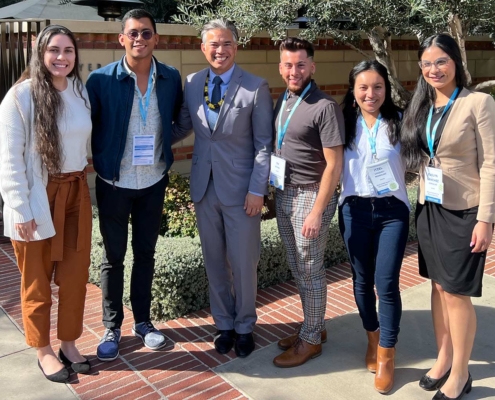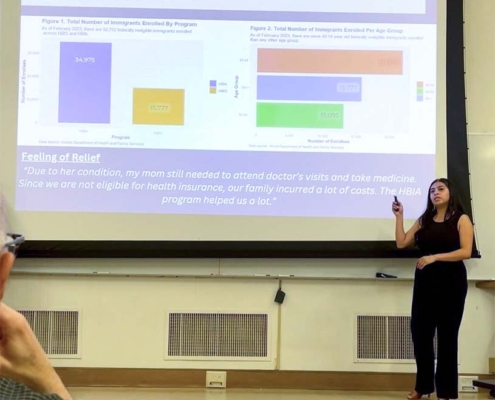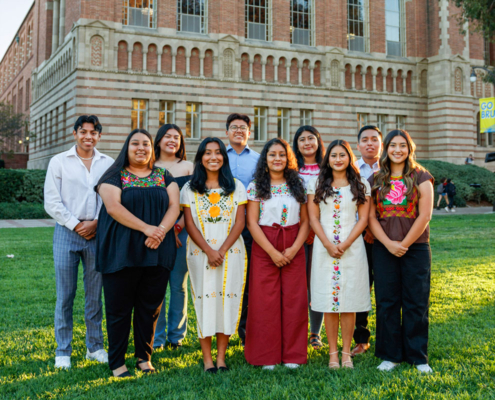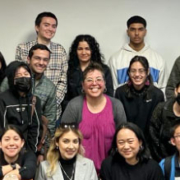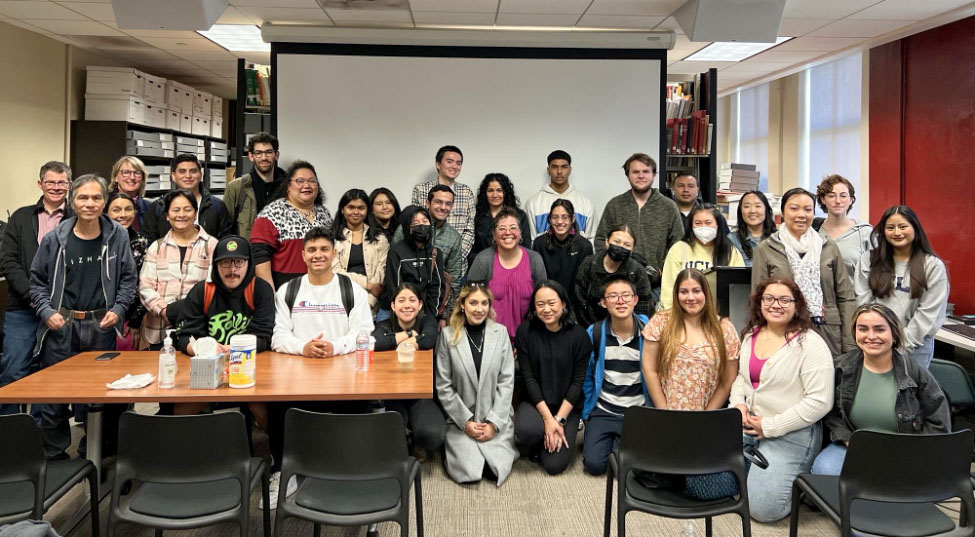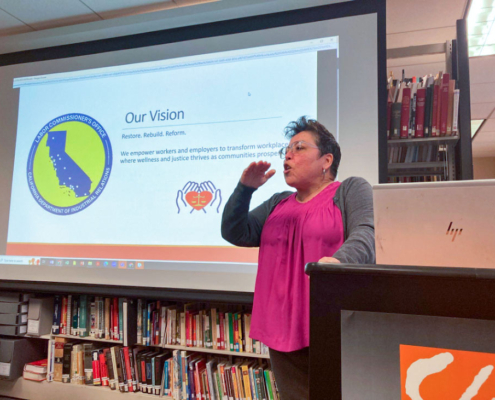Fellow Enriched by Participating in PPIA Junior Summer Institute 2023
Four of UCLA LPPI’s current and incoming fellows attended the Public Policy and International Affairs Program 2023 Junior Summer Institute (JSI).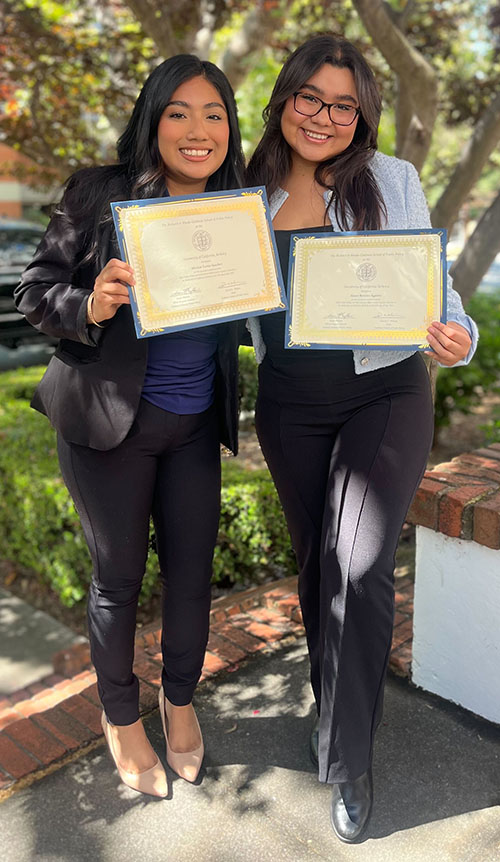
Aimee Benitez Aguirre and Miriam Torres Sanchez participated in the institute at UC Berkeley’s Goldman School of Public Policy. Karina Solano Rodriguez and Nicole Spradlin participated at Carnegie Mellon University Heinz College of Information Systems and Public Policy and University of Michigan Gerald R. Ford School of Public Policy.
Over seven weeks, fellows participate in a graduate-level preparation program for undergraduate juniors committed to a career in public service. The program addressed the lack of diversity across the public service sector, targeting government, nonprofits, public policy institutions, and international organizations. The fellowship aims to prepare students to obtain a Master’s or a joint degree in public policy, public administration, international affairs, or a related field.
For Aimee Benitez Aguirre, participating in the program allowed her to have a better understanding of how to navigate pursuing a post-undergraduate degree and built confidence in her abilities Still the biggest benefit was from the community she built across her cohort and staff: “You share the space with public service leaders from across the country willing to learn from you and your life experiences, as well as the opportunities you have as an individual to learn from theirs.”
PPIA has helped build a foundation for the leaders of UCLA LPPI, with many Institute staff counting themselves among the alumni, including Founding Executive Director Sonja Diaz, Director of Programs Juana Hernandez Sánchez, and Project Policy Analyst Belen Flores, as well as current LPPI fellow Itzel Vasquez Rodriguez. The PPIA fellows also heard from former LPPI fellow and staff member Kassandra Hernández, who was a guest speaker during the summer institute.
For so many, the PPIA fellowship changed their life. Belen Flores said, “PPIA offers students of color a glimpse into what graduate education can look like and the skills needed to succeed in both graduate school and a career in public service.”
“PPIA has taught me how to view policy through different academic disciplines like law and economics. This exposure provided me with a new toolset to address some of our society’s most pressing policy issues. It was also very empowering to share space with other passionate leaders who also want to make our world a better place,” said LPPI fellow Miriam Torres Sanchez.
The national network of PPIA fellows, comprised of over 4,000 leaders, remains connected long after the institute has concluded. They have helped support each other as they navigate prestigious graduate programs and competitive high-profile jobs, often being the first in the family to take this path. PPIA fellows support each other where family cannot and provide support outside of institutions that may not understand their lived experiences. In addition, PPIA also provides financial support for those pursuing graduate education within their graduate school consortium.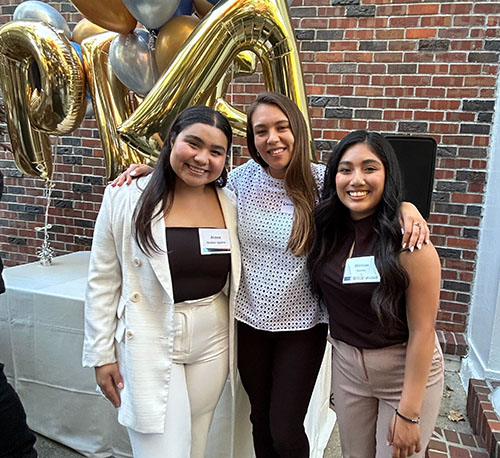
“PPIA was instrumental in shaping my view of policy for what it is and what it can become. I met one of my lifelong best friends at PPIA, and to this day, we have the same types of conversations we had in Ann Arbor about politics, power, and the future,” said Founding Director Sonja Diaz.
The JSI provides fellows with an enriching experience similar to the fellowship program LPPI has created. It offers students passionate about the Latino community training in research and policy skills, allowing them to pursue careers in fields they may have felt were inaccessible.
“The UCLA LPPI fellowship prepared me for PPIA in so many ways. The LPPI fellowship gives you confidence in your ability to contribute and bring forth curiosity and critical thinking into various conversations, something I was able to do during PPIA in my classes and group projects. In that same way, LPPI has exposed me to many critical issues impacting diverse Latino communities across the United States, allowing me to bring this distinct perspective to the conversation,” said Benitez Aguirre.
PPIA and UCLA LPPI provide the next generation of leaders with a clearer sense of all the career trajectories available to them and give them the tools they need to succeed.
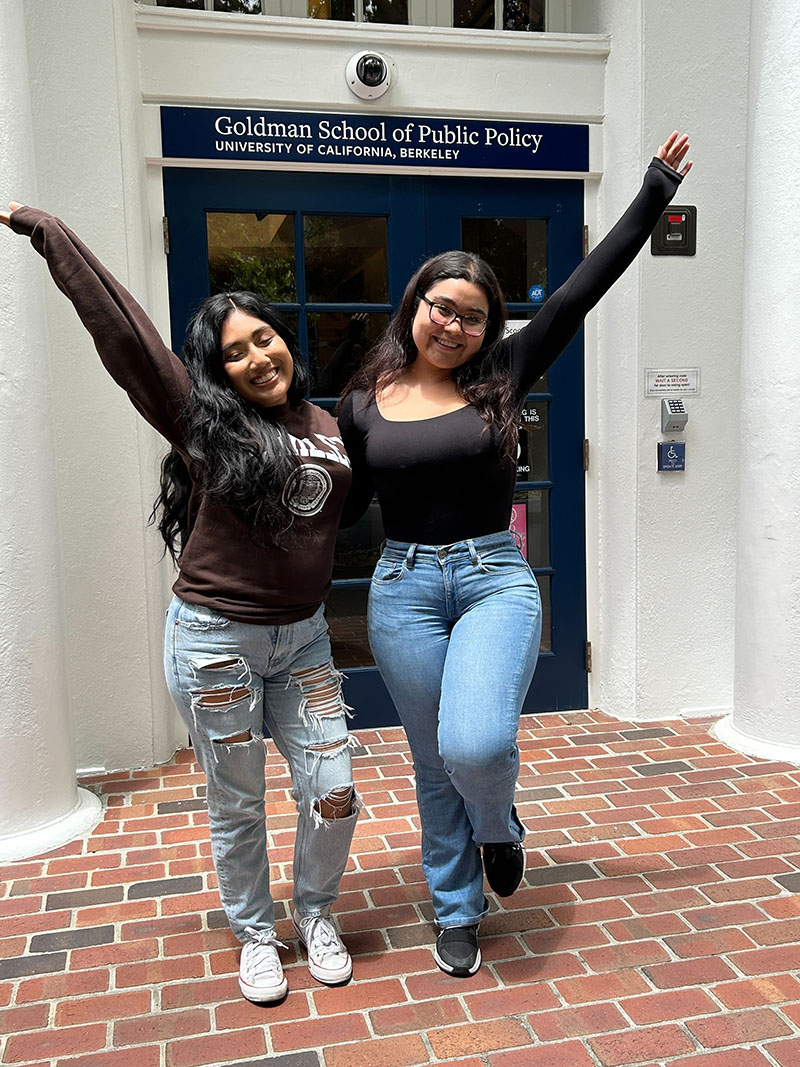

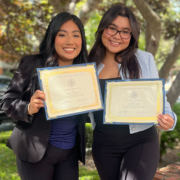
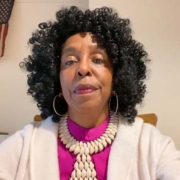
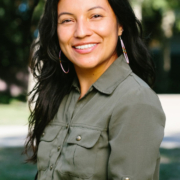
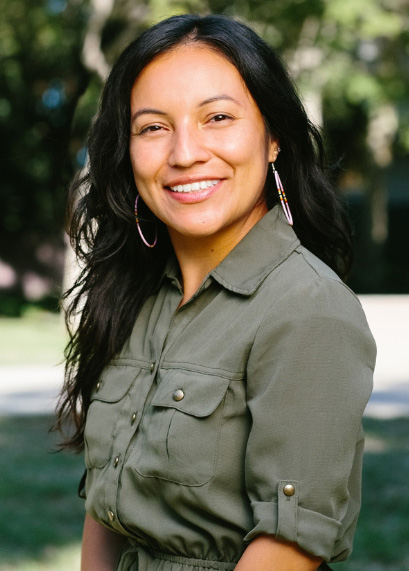
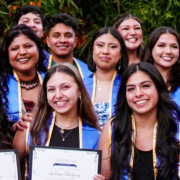
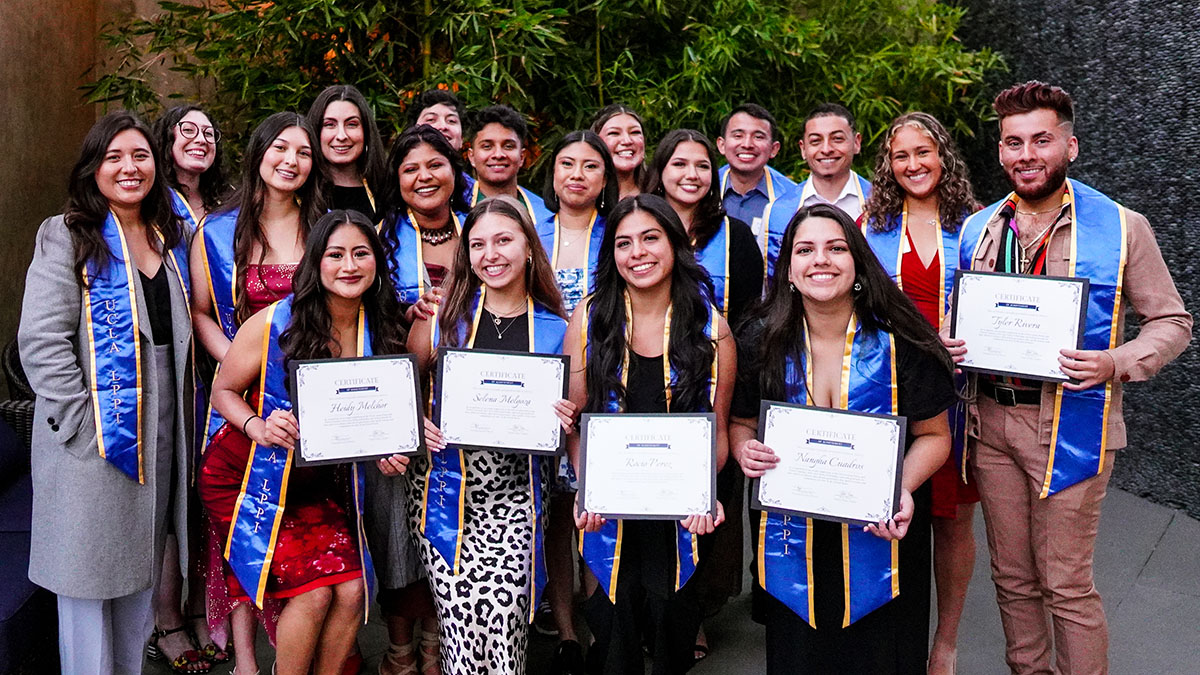
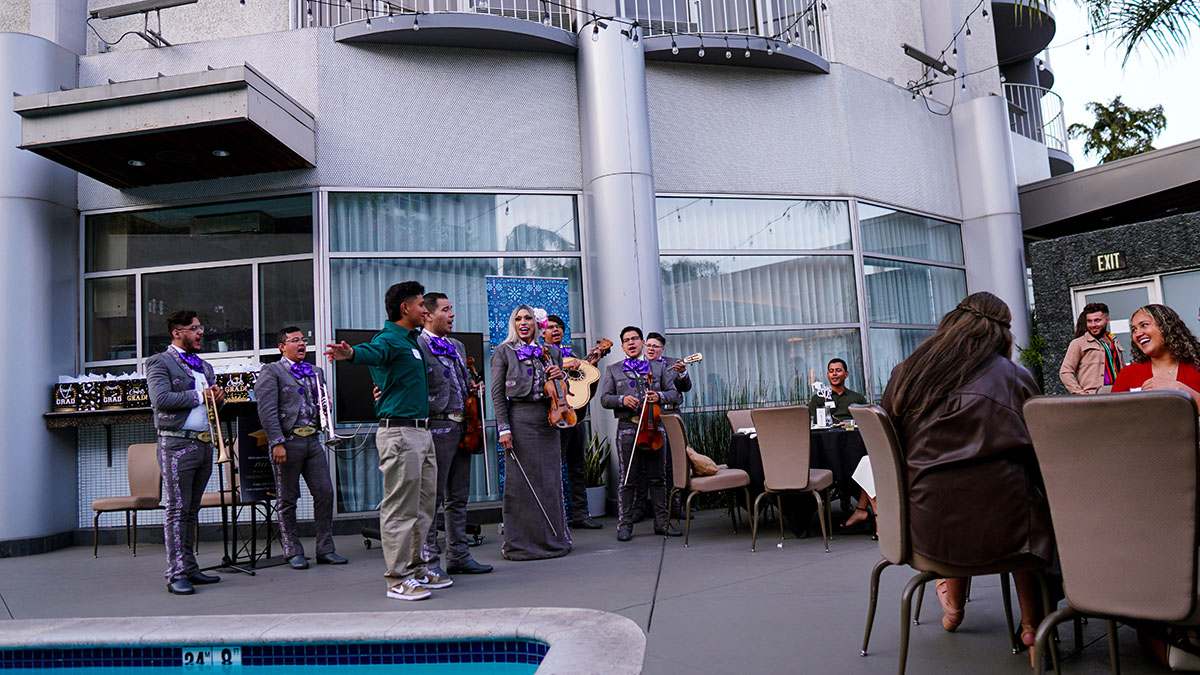
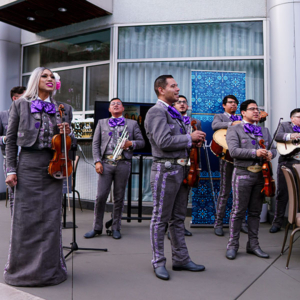
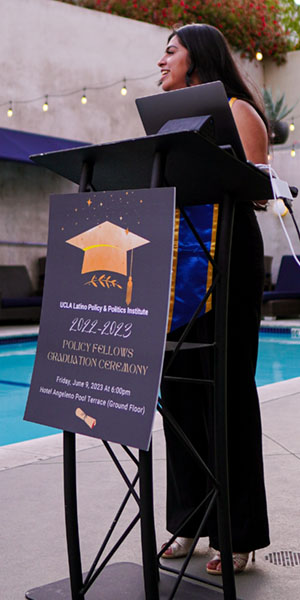
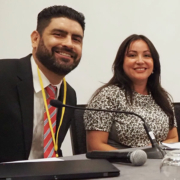
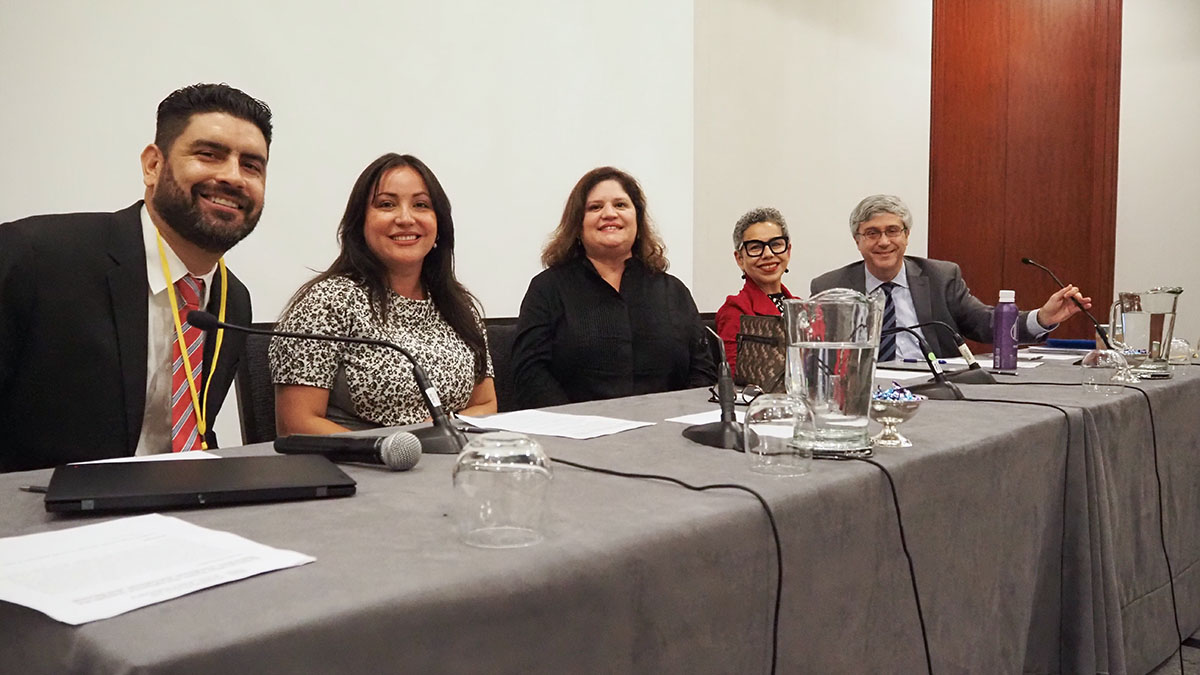
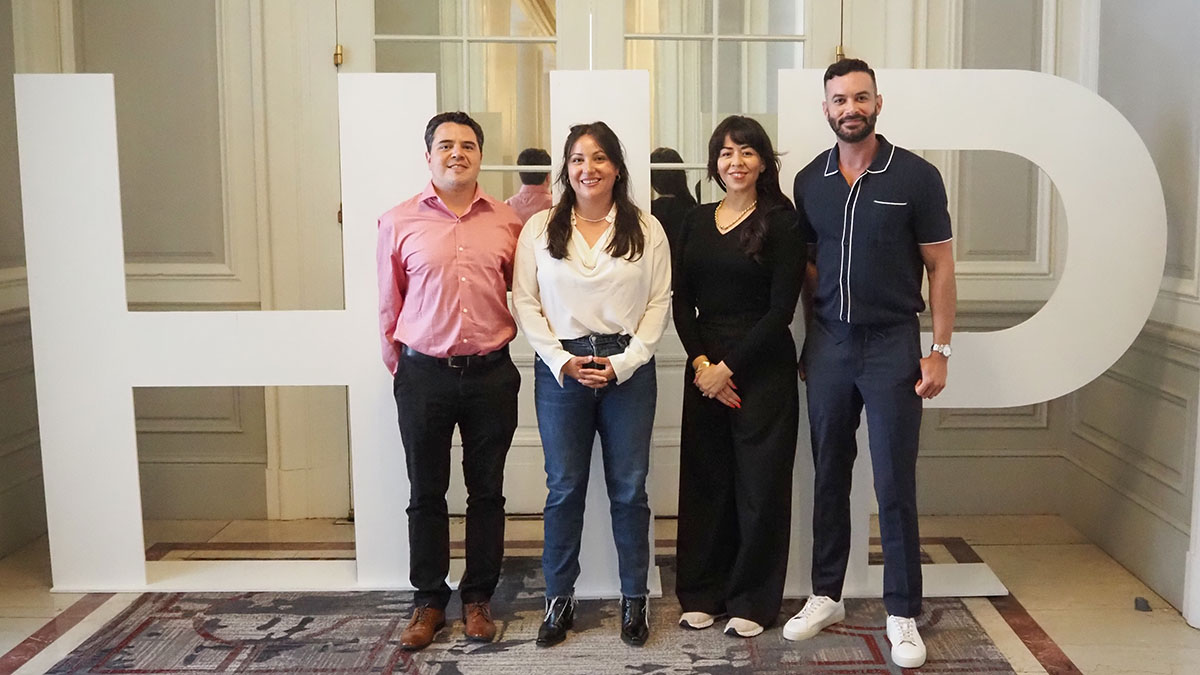
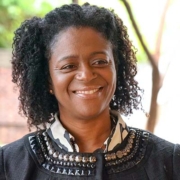

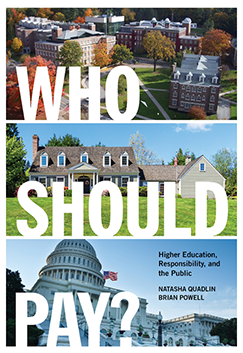 In “Who Should Pay? Higher Education, Responsibility, and the Public” author Natasha Quadlin takes the reader through the changing opinions on student debt over the past couple of decades.
In “Who Should Pay? Higher Education, Responsibility, and the Public” author Natasha Quadlin takes the reader through the changing opinions on student debt over the past couple of decades.